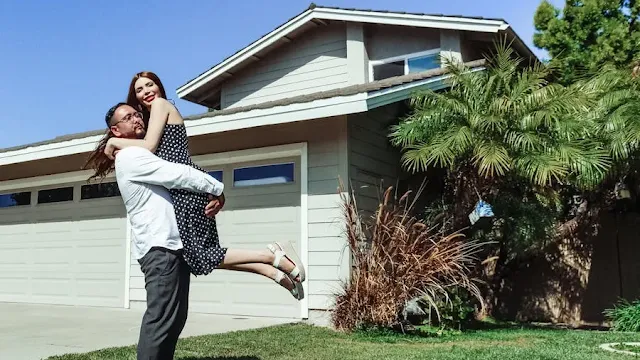
Table of Contents
Climate change is reshaping the home insurance landscape in 2025, with more frequent wildfires, hurricanes, and floods challenging traditional models. Could these changes break home insurance? This guide explores how climate change affects property insurance, whether policies can be canceled, what insurers are doing to adapt, and the rules governing home insurance. Learn how to protect your home in a warming world. 🏠🌍
How Does Climate Change Affect Property Insurance?
Climate change significantly impacts property insurance by increasing risks and costs:
- Higher Claim Frequency: Extreme weather events, like hurricanes and wildfires, have surged, with U.S. insured losses exceeding $100 billion in 2024, per CNBC. This drives up claims, straining insurers.
- Rising Premiums: In high-risk states like California and Florida, premiums have risen 20-50% since 2020, per The Motley Fool, making insurance less affordable.
- Shifting Risk Zones: Previously low-risk areas now face flooding or wildfires, rendering historical risk models obsolete. Insurers are hiking rates or withdrawing coverage in these zones.
- Insurance Deserts: In extreme cases, insurers stop offering policies in high-risk areas, leaving homeowners uninsured or reliant on costly state-backed plans like California’s FAIR Plan.
Homeowners in vulnerable regions should review coverage annually and consider flood or wildfire policies, as standard policies often exclude these perils.
Can Homeowners Insurance Cancel?
Yes, homeowners insurance can be canceled or non-renewed, especially due to climate-related risks:
- Non-Renewal: Insurers may refuse to renew policies in high-risk areas, such as coastal Florida or wildfire-prone California, citing unsustainable losses. In 2024, over 1 million policies were non-renewed in these states, per NerdWallet.
- Cancellation: Policies can be canceled mid-term for reasons like non-payment, fraud, or significant risk changes (e.g., a home becoming uninsurable after a wildfire). State laws typically require 30-60 days’ notice.
- Mitigation Requirements: Insurers may demand risk-reduction measures (e.g., fire-resistant roofing) to continue coverage. Non-compliance can lead to cancellation.
To avoid cancellation, maintain timely payments, comply with insurer requirements, and explore state-backed options like Florida’s Citizens Property Insurance if private coverage is unavailable.
What Do Insurers Do for Climate Change?
Insurers are adapting to climate change through innovative strategies:
- Advanced Risk Modeling: Companies like Allstate use AI and real-time climate data to predict risks, adjusting premiums and coverage accordingly.
- Specialized Policies: Insurers offer add-ons for climate risks, such as flood coverage through the National Flood Insurance Program (NFIP) or private wildfire policies, per PolicyPorch.
- Risk Mitigation Incentives: Discounts are offered for climate-resilient upgrades, like storm shutters or elevated foundations, saving 5-15% on premiums.
- Industry Collaboration: Insurers partner with groups like the Insurance Information Institute to advocate for sustainable building codes and climate policies.
These efforts aim to balance profitability with coverage availability, but challenges remain in high-risk areas.
What Is the Rule for Home Insurance?
Home insurance in the U.S. is governed by state regulations and insurer policies, with key rules including:
- No Legal Mandate: Unlike auto insurance, home insurance isn’t legally required, but mortgage lenders typically mandate it to protect their investment.
- Standard Coverage: Policies (e.g., HO-3) cover dwelling, personal property, liability, and additional living expenses, but exclude floods and earthquakes, requiring separate policies.
- Premium Factors: Rates depend on location, home value, risk exposure, credit score, and claims history. Climate risks increasingly influence pricing.
- Disclosure Obligations: Homeowners must disclose property conditions (e.g., flood risk) to avoid coverage denials. Insurers must provide clear policy terms and cancellation notices, per state laws.
Check state insurance departments, like NAIC, for specific regulations and consumer protections.
Frequently Asked Questions
How does climate change affect property insurance?
Climate change increases claim frequency, raises premiums (20-50% in high-risk areas), shifts risk zones, and creates insurance deserts where coverage is unavailable.
Can homeowners insurance cancel?
Yes, insurers can cancel for non-payment, fraud, or risk changes, or non-renew in high-risk areas like California, with 30-60 days’ notice required.
What do insurers do for climate change?
Insurers use AI risk modeling, offer flood/wildfire policies, provide mitigation discounts, and collaborate on sustainable building codes to adapt to climate risks.
What is the rule for home insurance?
Home insurance isn’t legally required but is often mandated by lenders. Standard policies cover dwelling and liability but exclude floods/earthquakes, with rates based on risk and location.
Climate change poses a serious threat to home insurance in 2025, with rising costs and coverage challenges. Homeowners can stay protected by reviewing policies, adding climate-specific coverage, and adopting resilient upgrades. For more insights, visit NerdWallet or PolicyPorch. Safeguard your home in a changing climate!














